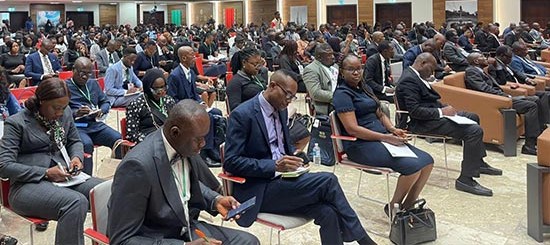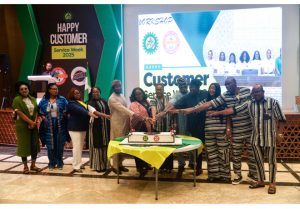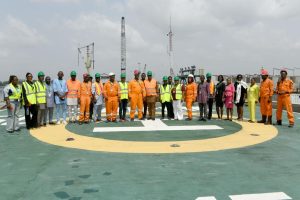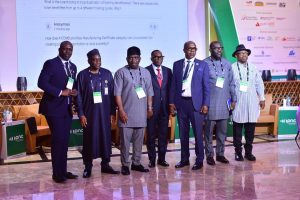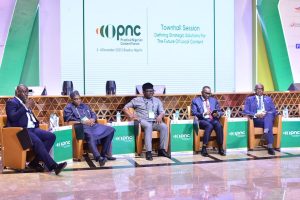A two-day capacity building workshop on Nigerian Energy Law and Practice, hosted by the Nigerian Content Development and Monitoring Board (NCDMB), in conjunction with the Nigerian Bar Association (NBA) and Institute of Continuing Legal Education (ICLE), kicked off on Monday at the Nigerian Content Tower (NCT), Corporate Headquarters of the Board, in Yenagoa, Bayelsa State.
The event which had in attendance over 700 lawyers, drawn from all states of the South-South geopolitical zone, is intended to acquaint Members of the Bar with the nature and operations of Nigeria’s oil and gas industry, as well as legal enactments and regulations from the earliest beginnings, and thus broaden the participation of Nigerian legal practitioners in the sector.
In introductory remarks at the occasion, a legal expert, Tobenna Erojikwe, Chairman, NBA-ICLE, lamented that very few indigenous lawyers understand issues relating to the industry and the governing laws, pointing out that the Nigerian authorities spend an average of US$230 million yearly on the services of foreign lawyers.
According to him, the Nigerian National Petroleum Company Limited (NNPCL) and sister federal agencies connected with the sector explain that Nigerian lawyers lack the requisite knowledge and expertise, hence their dependence on legal practitioners from abroad.
He said the two-day workshop is part of efforts of the NBA-ICLE to raise awareness and increase the knowledge of Nigerian lawyers on matters relating to the industry, pointing out that “Money that belongs to a country must come to citizens of the citizenry,”
Two facilitators presented the first two major papers for Day 1. Professor Bayo Adaralegbe, Head, Energy Group, Babalakin and Co., Lagos, dwelt on “Upstream Operations in Nigeria: Legal and Regulatory Framework,” while Sir (Dr.) Serena Dokubo-Spiff, of Serenity Legal Union and Partners, Port Harcourt, spoke on “Lawyering in the Nigerian Petroleum Sector.”
Among key aspects of upstream operations addressed by Professor Adaralegbe were “Nigeria’s Hydrocarbon Profile,” “Sources of Law Supporting Hydrocarbon Operations,” “Players in the Industry,” “Who Owns Natural Resources,” “How is the Upstream Industry Organised,” “Petroleum Prospecting Licence,” “Petroleum Mining Lease,” “Legal Character of PML [Petroleum Mining Lease],” “PIA [Petroleum Industry Act] Treatment of OPL/OML Award under Petroleum Act [1969],” “State Contracts in Upstream Operations (e.g. Production Sharing Contract, Risk Service Contract, Concession Agreement),” and “Restrictions on PEL [Petroleum Exploration Licence], PPL &PML.”
In his own presentation, Sir Dokubo-Spiff elaborated on the appropriateness of the workshop, pointing out to his audience that “You have to know the business of your clients,” and that the NCDMB and NBA-ICLE seek to get “lawyers enabled…to learn the fundamentals of energy law.”
He noted that the NCDMB, through the workshop, seeks to deepen “utilisation of Nigerian Content in the oil and gas industry” in line with the Nigerian Oil and Gas Industry Content Development Act (NOGICD) Act, 2010. According to him, the legal enactment alone could not have achieved much, but that “The Management of the Board has realised the importance of training indigenous lawyers in energy law.”
The training workshop continues at the Conference Centre of the NCT on Tuesday.
Discover more from Nigerian Content Development & Monitoring Board
Subscribe to get the latest posts sent to your email.
